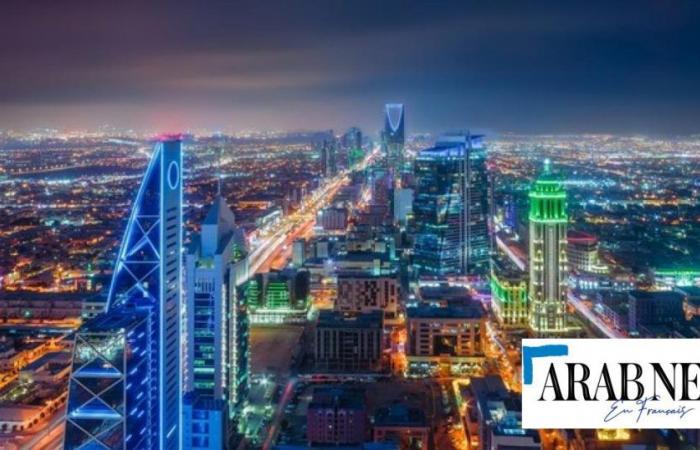RIYADH: The startup ecosystem in the Middle East and North Africa is experiencing significant growth, with Saudi Arabia emerging as a key driver of funding activity.
According to a recent report by Rasmal, MENA startups raised a total of $328.3 million from 60 companies in September, reflecting investors’ growing confidence in the region’s entrepreneurial talent.
This increase in funding highlights the MENA region’s growing role in the global startup landscape, fueled by government initiatives and a growing appetite for risk and innovation in the private sector.
Saudi Arabia led the regional funding efforts, securing $165.34 million for 13 startups, representing more than half of the total capital raised in the MENA region. This significant investment underlines the Kingdom’s strategic economic diversification objectives outlined in Vision 2030, which aims to reduce dependence on oil and foster growth in the technology and innovation sectors.
Cities like Riyadh and Jeddah are emerging as key startup hubs, supported by government initiatives and growing private investments that contribute to a robust ecosystem for entrepreneurial growth.
Government programs, including the Public Investment Fund and various venture capital initiatives, have been instrumental in this transformation. The Saudi government’s proactive stance has attracted private investment, with venture capital firms, accelerators and incubators keen to cultivate local talent.
In brief
*MENA startups raised $328.3 million from 60 companies in September.
*Saudi cities like Riyadh and Jeddah are emerging as key startup hubs supported by government initiatives.
*The UAE has emerged as another significant player in the MENA region’s startup ecosystem, with $114.32 million raised by 28 companies.
*Egypt attracted $25.09 million, mainly in the technology and innovation sectors.
*Countries like Bahrain, Oman and Morocco are also attracting investor interest, although on a smaller scale compared to regional leaders.
These efforts foster an enabling environment for startups in various sectors such as technology, logistics, healthcare and energy, thereby laying the foundation for long-term sustainable growth.
The UAE has become another significant player in the MENA region’s startup ecosystem, raising $114.32 million from 28 companies. Dubai, in particular, continues to attract investors with its business-friendly policies and status as a global gateway.
In September, sectors such as fintech, e-commerce and real estate technology saw substantial investment, reinforcing the UAE’s commitment to becoming a financial technology leader. Initiatives such as the Dubai International Financial Center Innovation Hub have played a vital role in attracting funds and talent to the region.
This growth highlights the UAE’s efforts to diversify its economy, reduce its dependence on oil and position itself as a resilient, innovation-driven economy. The variety of sectors receiving investment also highlights the country’s overall growth strategy aimed at building a sustainable and diversified future.
While Saudi Arabia and the United Arab Emirates have dominated the financing landscape, other countries in the region have also shown promise. Egypt attracted $25.09 million, mainly in the technology and innovation sectors.
Cairo’s startup ecosystem has benefited from government initiatives designed to support small and medium-sized businesses, providing critical infrastructure for early-stage businesses. This growth takes place in a difficult economic context, with Egypt facing turbulence due to the weakening of monetary policies.
Countries like Bahrain, Oman and Morocco are also attracting investor interest, although on a smaller scale compared to regional leaders. Bahrain’s focus on fintech and Oman’s investments in logistics and e-commerce indicate that these countries intend to establish their presence in the regional ecosystem. However, challenges remain in countries like Iraq and Kuwait, where political instability and regulatory barriers make it difficult to attract venture capital, resulting in an uneven distribution of funding across the region.
According to the Rasmal report, fintech became the largest sector in September, attracting $134.84 million. This high concentration highlights the rapid adoption of digital financial solutions in the region and the growing demand for technology-enabled banking services. Governments and businesses are prioritizing financial inclusion, which is driving growth in the sector.
Logistics technology has also attracted attention, driven by the rise of e-commerce. As consumer preferences shift toward online shopping, the need for efficient supply chain solutions has increased. SHIFT, a logistics technology company, secured the month’s largest investment of $83 million, highlighting the growing importance of infrastructure to support e-commerce and evolving supply chain requirements in the MENA region.
In September, companies in the final stages of development obtained the majority of financing, or $129.08 million of the total funds raised. This trend indicates a growing investor preference for companies that have demonstrated commercial success and scalability.
Given global economic uncertainties, late-stage companies with proven business models are often considered safer investments. Nonetheless, early-stage companies continue to play a vital role in the ecosystem, with seed-stage startups raising $57.30 million across 33 deals, demonstrating continued interest in the development of new ideas and emerging businesses.
The presence of government-backed incubators and accelerators remains crucial to supporting early-stage businesses, providing mentorship and infrastructure to facilitate their growth. However, the Rasmal report highlighted a significant gender disparity in funding: male founders received 96.79% of the funds raised in September, while female founders received only 3.21%. This imbalance highlights the persistent difficulties women entrepreneurs face in accessing venture capital.
Closing this gap will require a more inclusive investment approach, with increased support for women-led startups. Initiatives such as the TiE Women MENA program strive to promote gender inclusion, but additional measures are needed to foster a balanced and diverse entrepreneurial landscape across the region.
Notable startups funded in September include Syarah, an online car marketplace that raised $40 million, and TON, a fintech company that secured $30 million. These companies illustrate the diversity of sectors gaining traction, from automotive e-commerce to financial services, highlighting the breadth of opportunities for investors in the MENA region.
Overall, the MENA region’s startup ecosystem is well positioned for continued growth, thanks to investor interest in key markets and supportive government policies. However, rising geopolitical tensions could have an impact on this growth trajectory. The focus on fintech and logistics is likely to persist, aligning with the region’s broader digital transformation. Simultaneously, other industries, such as health technology and renewable energy, are expected to grow, reflecting changing priorities and emerging opportunities.
Challenges, including the gender funding gap and difficulties attracting venture capital in some countries, remain significant. However, continued efforts by governments, investors and entrepreneurs to encourage innovation are likely to gradually resolve these problems.
This text is the translation of an article published on Arabnews.com






